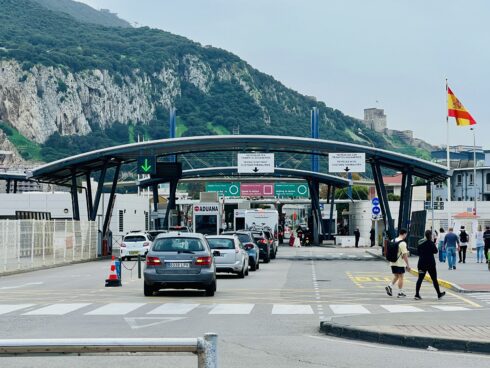GIBRALTAR is set to crack down on cash-in-hand Spanish labourers who charge less than their local counterparts.
The move targets small traders such as plumbers, electricians, and furniture assemblers, many of whom cross daily from the neighbouring Campo de Gibraltar.
As part of the clampdown, the Gibraltar government will intensify border controls and enact strict monitoring of cross-border commercial activities from next month.
Local businesses are being encouraged to help authorities identify and target unregistered traders by reporting potentially unlicensed competitors.

Business Minister Gemma Arias-Vasquez described it as a move to combat ‘illegal trade’ that has been creating unfair competition for local Gibraltar businesses.
The initiative comes after sustained pressure from the Gibraltar Federation of Small Businesses (GFSB), which has complained about the economic impact of unregulated Spanish commercial activities.
The Gibraltar government is taking a two-pronged approach: first, an awareness campaign among cross-border workers, and then a more rigorous enforcement mechanism.
A bilingual video has already been displayed over 25,000 times at the border crossing, reaching approximately 20,000 social media users and generating 70,000 online impressions.
A detailed infographic, developed in collaboration with the Chamber of Commerce, has been distributed to Spanish business associations, explaining the licensing and registration requirements for businesses operating in Gibraltar.
“These businesses cannot simply enter and provide services as they did before Brexit,” Arias-Vasquez told parliament, according to the Gibraltar Chronicle.
The minister emphasised that while goods can be delivered from foreign businesses, services such as kitchen installations, furniture assembly, and other trades require proper Gibraltar registration.
Opposition MP Craig Sacarello welcomed the move but pushed for greater resources to ensure effective enforcement, calling unlicensed trade ‘a big problem for Gibraltar businesses’ affecting jobs and market stability.
The measures come against the backdrop of heightened tensions over post-Brexit trade arrangements, with the government keen to assert control over its economy and borders.









